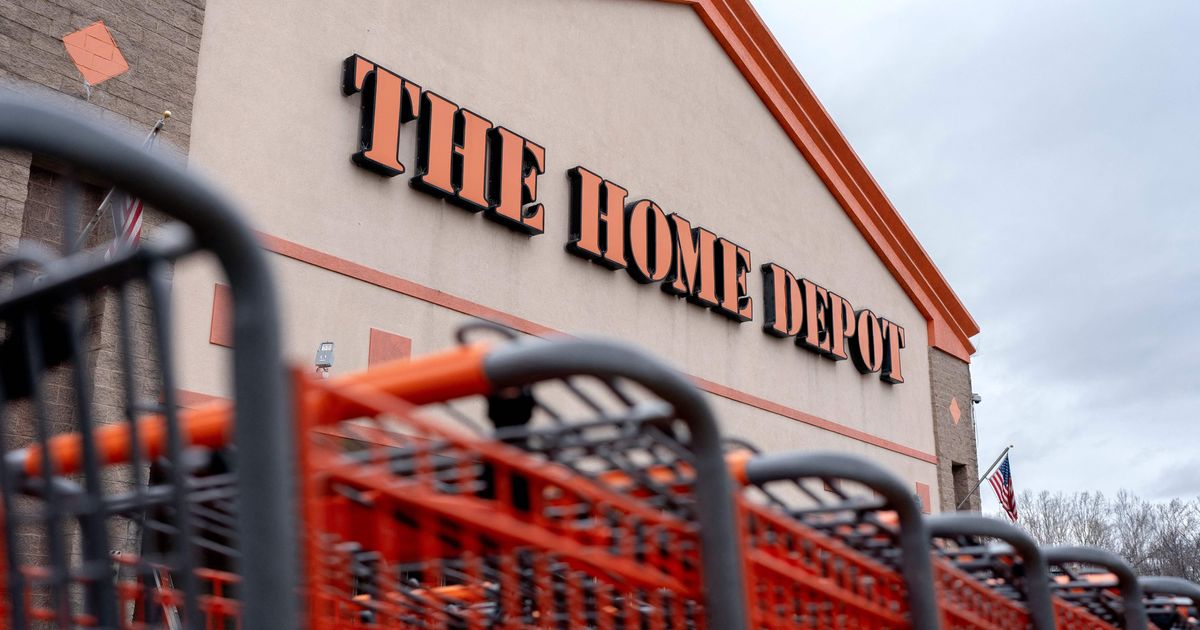
Home Depot Union Supporters Say They’re Overworked And Understaffed – Heemang Parmar
[ad_1]
Felix Allen never understood why tracking down an employee who could help him find what he needed at Lowe’s was so hard.
Allen works a merchandiser building product displays for the big-box home improvement chain. Or at least that’s what he’s supposed to be doing. He said the staff is stretched so thin that he can’t go anywhere in his New Orleans store without customers flagging him down for help in other departments.
“If I’m walking past hardware, [a shopper] is gonna show me some archaic screw and ask me, ‘Can you find this for me?’” said Allen, 26. “I’ll spend 15 minutes trying to find that for them when I should be doing something else.”
He doesn’t blame the customers.
“Lowe’s is putting us in a bad situation,” said Allen, who has worked for the company for roughly two years. “If you’re in a hardware store, you should be able to find things. It gets taken out on us a lot.”
Anyone who’s wandered through the paint section at Lowe’s or Home Depot knows how difficult it is to find an available worker for advice. The pandemic certainly didn’t help, as home renovations boomed and retailers struggled to retain employees without bidding up wages. The lean staffing has frustrated not only shoppers but the workers who are there to help them.
“If you’re in a hardware store, you should be able to find things. It gets taken out on us a lot.”
– Felix Allen, Lowe’s employee leading a union effort
Allen has been trying to form the very first union at Lowe’s, a chain with 2,200 locations in the U.S. and Canada. He filed for an election at his store with the National Labor Relations Board (NLRB) last month, but he and his coworkers later withdrew their petition. Allen said Lowe’s “flooded” the store with managers from other locations and corporate headquarters after the union campaign went public.
“Clearly, if they can bring in that many people on short notice, they have plenty of money to adequately staff our store,” he said.
An organizing effort is also underway at a Home Depot in Philadelphia, Pennsylvania, where the NLRB will be conducting an election that ends Saturday. Home Depot, which has 2,000 U.S. stores, has no unionized workers at its retail locations, although some of its truck drivers in California are Teamsters members. The Philadelphia campaign is independently run and not affiliated with an established union.
Lowe’s and Home Depot declined to answer questions about their staffing levels. Lowe’s noted in a statement that the union petition had been withdrawn and said the company is “committed to having a positive working environment.” Home Depot said, “We respect the right to unionize, we just don’t believe it’s the best solution for our associates.”
Vince Quiles, a 27-year-old leading the Home Depot effort, said the company doesn’t want to have any excess labor on the floor at any point “so that you, the employee, stay moving the entire time you’re here.” He said the system doesn’t offer much slack when an employee calls out sick.
“I work in receiving. Say it slows down, and they really need help in plumbing,” Quiles said. “Now, you have to go work in the plumbing department. But you’re not paid to do that job, and you don’t have the expertise to do that job.”

STEFANI REYNOLDS via Getty Images
He added, “When you staff with that mentality, that puts a lot of undue stress on people.”
Quiles recently tweeted a photo of a letter managers sent to the store’s employees last week urging them to vote against unionizing. The letter seemed to acknowledge the frustration workers have over staffing.
“A union isn’t going to fix staffing issues, or force the company to change rules we think are essential to our success,” the managers wrote.
Many retailers have complained during the pandemic that they can’t find enough workers to run full throttle. The unemployment rate is still hovering near a low 3.5%, meaning companies are having to compete for a small pool of available workers. The competition has led to wage gains in the retail sector, but high inflation has just about wiped them out.
Inadequate staffing is probably harder to mask at the home-improvement chains, since ― in contrast to a Target or Walmart ― these stores are filled with shoppers who don’t even know what they need. Home Depot noted in its most recent annual report that “our customers expect a high level of customer service and product knowledge from our associates.”
The company said the tight labor market remained a challenge, and warned investors that it may result in “increased salaries, benefits, or other employee-related costs.”
In recent months, some retailers have decided they hired too many workers. Both Walmart and Amazon said during earnings calls in May that overstaffing took a bite out of their profits. The turnabout shows how sensitive retailers are to carrying any excess labor relative to sales, and why many prefer to do seasonal hiring for temporary positions.
“I only work one department, but they have me in four others. I don’t get extra pay for that.”
– Home Depot worker
Home Depot employees who support the union effort said it was hard to imagine overstaffing ever being a problem from their point of view. One of Quiles’ coworkers, who asked to speak anonymously for fear of retaliation, said their duties had stretched far beyond what their position calls for.
“It’s the overworking with the lack of pay,” the worker said. “I only work in one department, but they have me in four others. I don’t get extra pay for that.”
Another Home Depot employee said the workforce is “being spread too thin.” The worker inevitably spends a lot of time helping shoppers find the correct bolts or fittings, even though customer service isn’t technically part of their job.
“I’ve had customers stop me literally when I was one foot in the restroom, the other one out,” the worker said. “They get frustrated with us. They don’t understand.”
There are certain ways a union contract might address such complaints. It’s hard for a union to force a company to hire more people, but a collective bargaining agreement might better define roles so that workers don’t end up doing other people’s jobs.
Home Depot said earlier this year that it was trying to speed up job offers to staff up more quickly. The company was trying to add 100,000 workers ahead of the spring and summer – peak time for home renovations – and said some workers would get job offers within a day of applying. “In today’s climate, jobseekers are shopping for the best opportunity,” a company vice president said at the time.
According to Allen, many of his coworkers at Lowe’s don’t get scheduled for as much work as they would like, despite the tight labor market. Retail workers have complained for years that their employers prefer to keep a large pool of part-timers rather than boost more people to full-time roles with benefits or have them work overtime, which comes with a time-and-a-half pay premium.
Allen said many workers want more time on the clock – they don’t want to feel so harried.
“There’s this weird thing where they’ll hire a lot of people but then give them barely any hours,” he said.
Lowe’s and Home Depot have opposed the union campaigns at their stores, saying they value a “direct” relationship with employees and don’t believe unionization is in the workers’ interest.
Home Depot has dispatched outside managers, including from headquarters in Atlanta, to discourage Philadelphia workers from voting for the union. Meanwhile, Allen recently shared videos of Lowe’s personnel trying to shoo him out of the store parking lot where he was distributing union literature.
“People recognize they’re spending a lot of money to bring folks in” to combat the union effort, Allen said. “They could have been using that money to treat us better.”
[ad_2]






